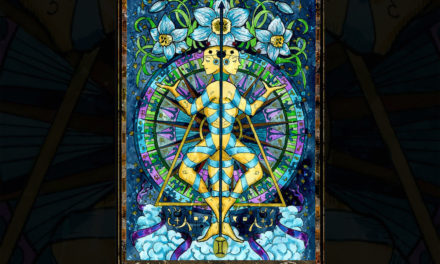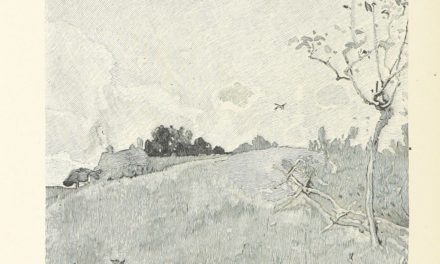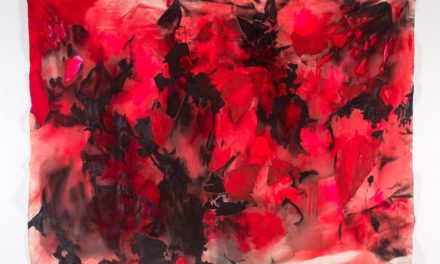The Potato and the Wax
by Chelsea Sutton
Issue 12: Sound | 1,130 words
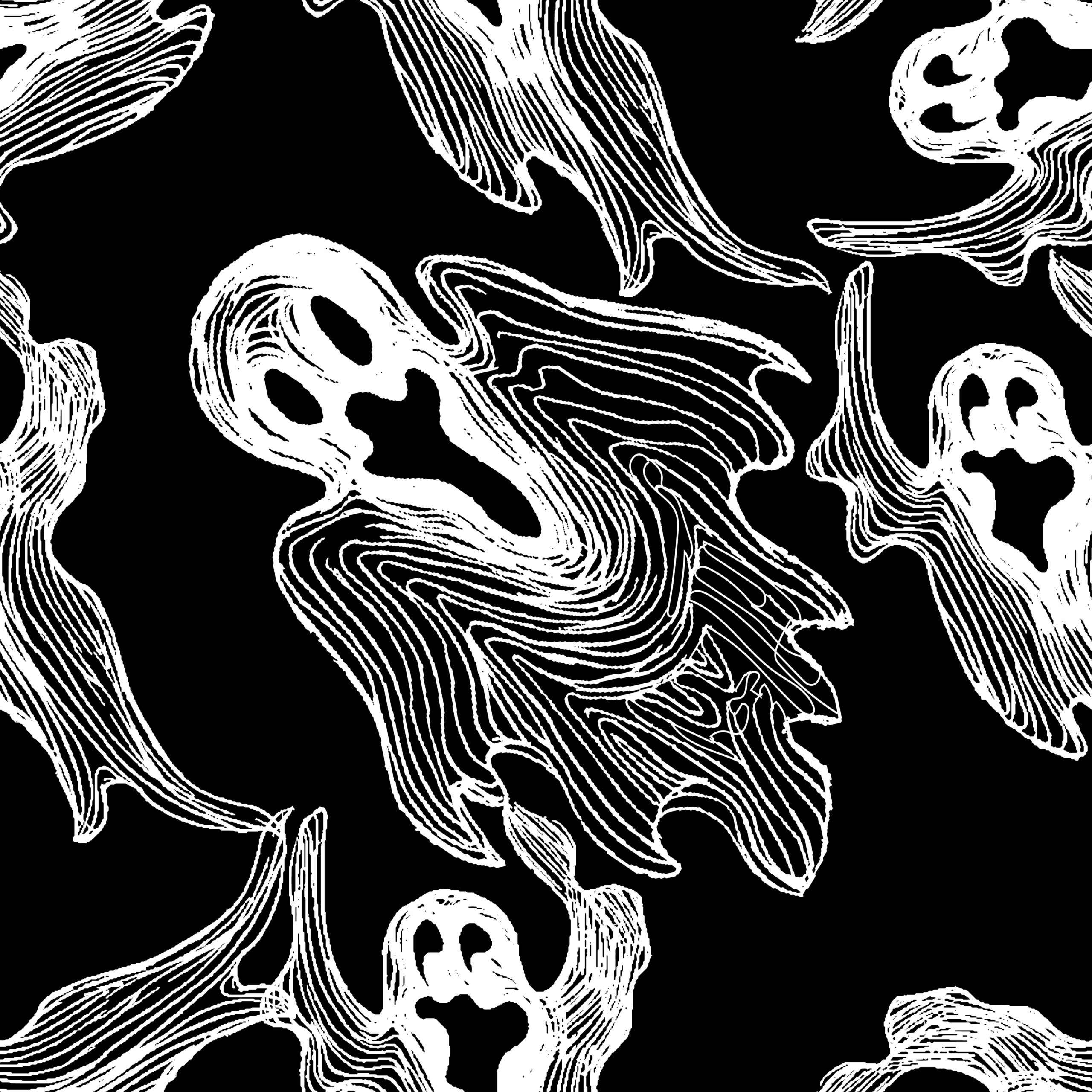
untitled, © Evgenia/Adobe Stock
I joined a museum club. A club. That visits museums.
Also, I’m dead. A spirit, an apparition, a haunting, whatever. I’m a very dead person who joined a club with a bunch of other very dead people.
This isn’t really me. I don’t join clubs and go on field trips and use the buddy system. And you know what—forget this whole shimmery see-through ghost bullshit. I’m not fuzzy around the edges like the other dead people. I don’t float around and moan and walk through walls. I still try to look like myself. My freckles, my frizzy hair, my boobs, my belly. It takes a lot of concentration to hold myself together.
Anyway, I’m in this museum club and this week the worst museum comes up in the rotation—Madame Tussauds wax museum. We’re in Los Angeles. We could go anywhere—the Autry or Petersen Auto or the Natural History or Jurassic Technology or the Museum of Tolerance—the wax museum shouldn’t even be on the list.
So I tell everyone, Well damn, that’s way too intellectual for me guys, I better sit this one out. Carl, the group leader, snorts—the nose on his transparent face hops in the air from the force of it—and he writes something in his account book, and everyone groans.
Carl does this all the time, writes notes on our attitudes and bad jokes, like he’s reporting to God or the universe or the vast nothingness. But Jami thinks Carl writes poems about love he remembers feeling, like things are bubbling up and he’s finding himself all over again. I told her no way. Just look at him, he was probably a middle manager of an electronics store or a Burger King and never loved anything, ever. And Jami said, See, this is your problem: You think you know people just because you used to be one.
When I met Jami, she was a teenage girl, Slurpee-blue hair, three nose rings, and cleavage down to her navel. She found me wandering around La Cienega by myself and invited me to the museum club. Being a ghost in Los Angeles feels like you’re in a dive bar, sitting on a barstool, still feeling the heat from the guy who sat there before you. And that heat is all you have to hang onto because there’s nowhere else to sit and there’s no bartender and all the bottles have run dry. So you sit alone and wonder about the guy who left, where he went, and why he left so soon. And if you sit there long enough, you start to disappear too.
So you join a club.
The next time I saw Jami, she was a boy with high-water pants. The next time, a tabby cat with half a tail. Then a mosquito with three wings. She was once a fern and a cactus within days of each other—the next time, a storm cloud smelling faintly like the ocean.
Jami has no problem letting go of her body. She prefers it this way, shifting bits of her soul around like pennies jingling at the bottom of a purse.
So while Carl writes and everyone stares, I catch Jami’s eye, or one of many, because today she’s a potato. She shutters a bit as if lifting an eyebrow, a hash-brow if you will, and this hash-brow movement says, Careful, they’ll kick you out. Don’t be an idiot. So I sigh and say, I’m just screwing with you. Of course I’ll go to Madame Tussauds. I love looking at fake wax people.
I call them waxies. They’re not alive, not dead, just wax nothingness. If that’s not disturbing enough, half of the wax celebrities aren’t just themselves, but are also their famous characters. So you could have Johnny Depp as Captain Jack Sparrow and Willy Wonka and Edward Scissorhands, and it makes me wonder what kind of fresh hell allows this kind of thing to happen.
I’m already creeped out and anxious, standing in front of a Charlie Chaplin waxie at Madame Tussauds, when I see this girl pop into view. Not a waxie but a girl. Blood and feet and earrings and breath and a vintage T-shirt.
It’s been a long time since I’ve seen the living, even though I’ve been spending all my time in museums, looking at shoes and cars and bones and space shuttles that belonged to them.
I’m scared of her. She walks between Charlie Chaplin and me, humming to herself, sneaking bits of chocolate from the back pocket of her jeans.
And she passes right through me. The warmth of her body fills me up. For a brief moment, I taste chocolate. I hear her humming in my head. I breathe with her.
You know, it’s funny, what you choose to forget, what you get used to. I never really noticed my breath when I had it.
It’s too much. My edges are getting fuzzy. I try to focus on my freckles, my belly—my body, lying in a box somewhere. My body that is me, is not me, was once me.
The girl stops humming. She shivers and runs out of the room.
Every piece of me rings with scratchy silence, as if I’m the needle at the end of a record, trying desperately to start the song over again.
Jami as a potato finds me hiding beneath the skirt of Ginger Rogers in mid-dip with Fred Astaire. I say, I’ve had an encounter.
Jami says, in broken potato-ese, An encounter with what?
With breathing, I say. It’s really gone.
Yeah, but so what? Jami says this while reaching out a brown arm that has just sprouted from her potato body. I take the french fry hand and hold tight. She says, Just be glad you never got famous and got a waxie made of you. Imagine being stuck like those poor bastards for all eternity.
I hold onto Jami as I finally let myself go. I shift into a tattered copy of Scary Stories to Tell in the Dark, and then my childhood cat with white fur around her toes, and then the boy I loved when I was nineteen with the green eyes, and then my grandmother’s hands shuffling playing cards.
Jami says, Slow down. You don’t need to be everything all at once.
As we leave, the dead people are chattering about the next museum on the rotation, the Museum of Death, and I wonder what the hell that could be. A museum of our group maybe, standing around in a room, staring at each other. I say this out loud, and Carl snorts, making a mark in his notebook, probably noting down a love poem he’d forgotten about and only just now remembered.
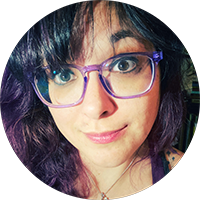
Chelsea Sutton
Chelsea Sutton is a playwright, fiction writer, director, and immersive experience devisor for weird, fantastical dystopias with a sense of humor. She was a 2016 PEN America Emerging Voices Fellow and is member of the Clarion UC San Diego 2020/21 Science Fiction and Fantasy Workshop. Her short story collection, Curious Monsters, was the runner-up for the 2018 Madeleine P. Plonsker Emerging Writer’s Residency Prize. Her fiction has also appeared in Bourbon Penn, The Texas Observer, Exposition Review, Cosmonauts Avenue, Luna Station Quarterly, Pithead Chapel, Blood Orange Review, and Sequestrum. MFA UC Riverside. Chelseasutton.com.

